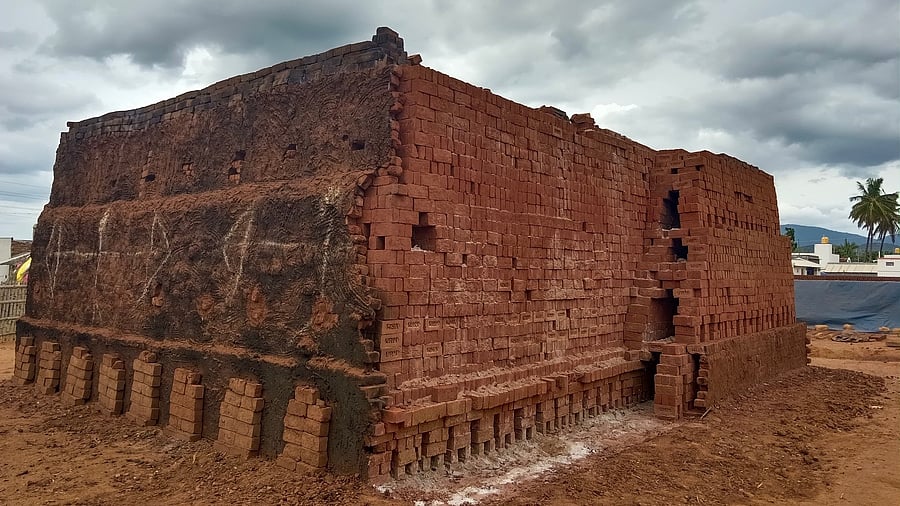
Different studies estimate 6,000 to 10,000 brick kilns in Karnataka.
DH FILE PHOTO
Bengaluru: In a major reform in the monitoring of pollution caused by brick kilns, the Central Pollution Control Board (CPCB) has ordered the state government to implement within a month a new regime of rules that also seeks to check indiscriminate mining of soil.
High levels of pollution are caused by the baking of bricks. The CPCB had in 2023 issued a new notification making it mandatory for kilns to implement zigzag technology or vertical shaft, where bricks are arranged to facilitate better transfer of heat and boost combustion so that fuel consumption is reduced.
The notification had set February 2025 as the deadline for all the brick kilns to comply with the rules, including the use of piped natural gas as fuel that were specified earlier. The Ministry of Environment, Forest and Climate Change (MoEF&CC) had recently extended the deadline for new chimneys by amending the Environment (Protection) Rules.
Now, the CPCB has urged the Karnataka State Pollution Control Board (KSPCB) as well as boards in other states to ensure that all the brick kilns display their details at a “prominent” place. The details include the design of the kiln, place of soil mining with geo-coordinates and quantity mined in a year, total area of brick kiln and brick production per year, green belt area, groundwater permission, date of last stack monitoring among other matters.
Studies estimate that India has about 1.4 lakh brick kilns with a majority of them in the peninsular region. Different studies estimate 6,000 to 10,000 kilns in Karnataka. Many of these kilns are small units characterised by manual operation. Firewood, agriculture residue and other solid fuel is used in the kilns.
The KSPCB and other authorities in other states have been told to submit a compliance report within 30 days. To a question, a senior official said in southern Karnataka, most of the brick kilns are spread over Kolar, Chikkaballapur and Bengaluru Rural districts. “We have issued general directions from time to time. Notice is given to the violators,” an official said.